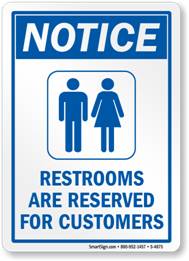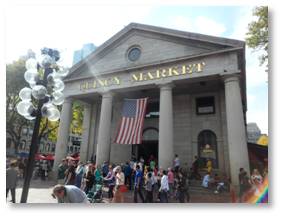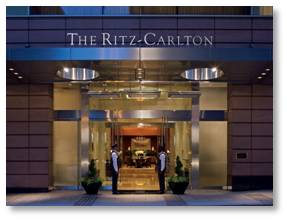All human beings have two basic biological requirements:
- We must consume food
- We must eliminate waste
Both rules apply in cities but, oddly enough, only the first one presents no problem. From food trucks to upscale fast food to fine dining, cities offer a multitude of places to purchase meals of all types and suitable for all budgets. A plethora of dining choices is a source of pride for many cities, as is a vibrant food scene, ethnic restaurants. farm-to-table cooking, fresh seafood, and celebrity chefs.
Failing at Number Two
 When it comes to requirement number two, well, not so much. If you need a pit stop, you’re likely to find there’s nowhere to go.
When it comes to requirement number two, well, not so much. If you need a pit stop, you’re likely to find there’s nowhere to go.
City governments typically ignore or provide limited facilities for people to relieve themselves. Even children don’t get a break in this regard. Walk around any city and you’ll see private establishments posting signs that say “Restrooms for Patrons Only.” Go into one and ask to use the bathroom and you’ll get the stink eye at best or be flatly refused at worse. The difference, of course, is that no one makes money by providing public bathrooms as restaurants do in offering good food.
Demographics or Gender?
The New York Times recently ran an article by Matt Flegenheimer and J. David Goodman called “Public Urination in New York Becomes Test Case for Policing.” It concerns how strictly the police should view public urination and whether it should be considered a violation instead of a misdemeanor. The article focuses on how the law is applied in different New York neighborhoods and whether it targets certain demographics more than others. While that may be a concern, several readers took issue with the two male authors and commented on another point: most offenders are men simply because public urination is biologically feasible for men. Women, who lack that option, literally have nowhere to go.
 Boston has historically taken the same approach to the process of elimination: ignore it. To be fair, the city is now waking up to the need for accessible toilet facilities. Boston now stations multiple Port-a-Potties near public events and popular places. They include restrooms in public buildings like the new Boston Public Market on Congress Street that opens at the end of this month. The city has also enlarged and improved the public restrooms at Quincy Market, one of the most heavily visited tourist locations in the country.
Boston has historically taken the same approach to the process of elimination: ignore it. To be fair, the city is now waking up to the need for accessible toilet facilities. Boston now stations multiple Port-a-Potties near public events and popular places. They include restrooms in public buildings like the new Boston Public Market on Congress Street that opens at the end of this month. The city has also enlarged and improved the public restrooms at Quincy Market, one of the most heavily visited tourist locations in the country.
Giving My Full Attention
The availability of public toilets concerns me because I’m a tour guide in Boston. It takes me an hour to drive into Boston—sometimes more. By the time I park and walk to where the tour starts, I need a bathroom because I will be out leading a tour for the next hour and a half and want to give it my full attention.
When they arrive for walking tours, our guests also sometimes ask for the nearest restroom. Many are tourists, visitors to our city and we want them to have the best possible experience on our tours. That means they must be comfortable.
I usually use hotel restrooms. My reason for that is simple:
- Strangers constantly come and go and doormen have no way of knowing who ‘belongs” in the hotel and who does not.
- No doorman will risk offending guests or their friends and relatives, by refusing them access.
- If you look decent, and businesslike they will open the hotel door for you.
- Hotel bathrooms are clean, safe, and often include amenities such as tissues.
When You Have Nowhere to Go
 Curbed Boston must agree with me because they published a list of Greater Boston’s Top Hotel Restrooms for the General Public.
Curbed Boston must agree with me because they published a list of Greater Boston’s Top Hotel Restrooms for the General Public.
I have never been turned away from a hotel but that does not relieve a city of the need to provide public toilets. Even the homeless, who are often neither clean nor businesslike, need a place to pee—particularly the women.
The @NYT article notes that many of the New Yorkers who have been arrested for public urination are taxi drivers. These are people who are employed and going about their work day (or night) but need a pit stop now and then in a city that doesn’t provide public facilities.
Why No Restrooms?
Why do so many American cities ignore this basic human need? I think several factors come into play:
Fear: City officials are afraid that public restrooms will draw crime. Drug addicts will use them for shooting galleries. People will get mugged. Women will get raped. So let’s not make the facilities available at all.
Cost: Bathrooms must be built but they must also be cleaned. It costs money to have an attendant perform this service. The budget doesn’t allow for this so let’s just avoid the whole thing.
Hassle: While everyone pees, neighbors might oppose placing a public bathroom in their vicinity. NIMBY would apply and that would cause problems for the officials trying to site the new restroom.
We Can’t Deny Biology
I understand all these arguments but biology can’t be denied. When a city has a vibrant street scene, when tourists come to visit from all over the world, when people make their living out of doors, when mothers have children who just can’t wait, and when the poor have no homes, public restrooms are essential.
